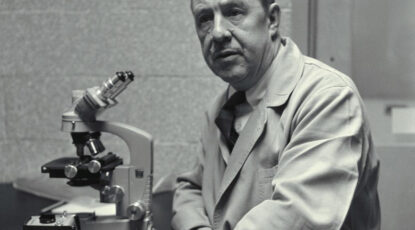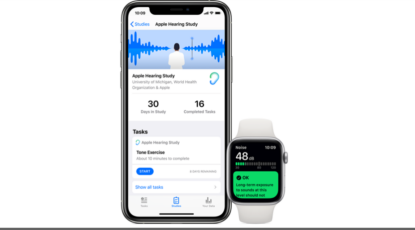Science and Technology
-
Mind control
“It’s like you have a hand again,” says Joe Hamilton, as U-M researchers amplify faint, latent signals from arm nerves to enable real-time, finger-level control of a robotic hand.
-
Flattening the curve for COVID-19
History shows that taking strong steps now to slow the spread of coronavirus will help communities and individuals. How can you help?
-
“Alexa, let’s chat!”
A U-M team is advancing conversational AI to find whether speaking with an inhuman entity could be equally, if not more, fruitful and enjoyable than engaging with a fellow human.
-
Toward a portable concussion detector that relies on an infrared laser
Doctors and engineers collaborate on a noninvasive way to measure whether brain cells are in distress using an infrared laser. The new device could enable concussions to be diagnosed on the sidelines of an athletic event.
-
Producing ‘green methane’ with artificial photosynthesis
A solar-powered catalyst uses artificial photosynthesis to turn carbon dioxide into methane. We could be recycling smokestack CO2 within 5-10 years, researchers say.
-
‘We’re missing something fundamental about the sun’
First data from NASA’s Parker Solar Probe mission has implications for space weather prediction and Earth’s power grid.
-
The first flu shot
When an influenza epidemic threatened the American effort in World War II, the War Dept. drafted scientist Tommy Francis to combat the killer virus. Francis’ team at U-M developed the world’s first flu vaccine.
-
U-M to build $300m center in Detroit
The Detroit Center for Innovation will serve students pursuing advanced degrees in mobility, artificial intelligence, data science, and more. Construction begins in 2021.
-
Apple and U-M collaborate on sound study
Scientists have long grappled with measuring the impact of noise exposure on humans. U-M has partnered with Apple to use a person’s iPhone and Apple Watch to generate a more holistic overview.










